Elderly care for your loved one
Elderly care helps your loved one stay independent for longer with tailored support from a dedicated carer. Discover how Elder can help today.

Used by 5,000+ families across the UK

More value
On average, services facilitated by Elder are 35% cheaper than traditional alternatives.
More control
Set your care hours from our custom built app. Manage and collaborate care with family.
More choice
View carer profiles, read reviews from other families, and arrange a video/phone call ahead of placement.
More support
From our family support specialist to our in-house clinical team, we’re on hand if you need us.

We are an award-winning marketplace connecting families with quality carers.
Every care story is personal, and ours is no different. Our founder, Pete, was inspired to help families like yours after struggling to find the right care for his own Gran, Frances. Fast forward to today and our platform has connected thousands of families and self-employed carers. Our tools personalise every care experience, eliminate unnecessary paperwork, and empower families to take control of later life.
What is elderly care?
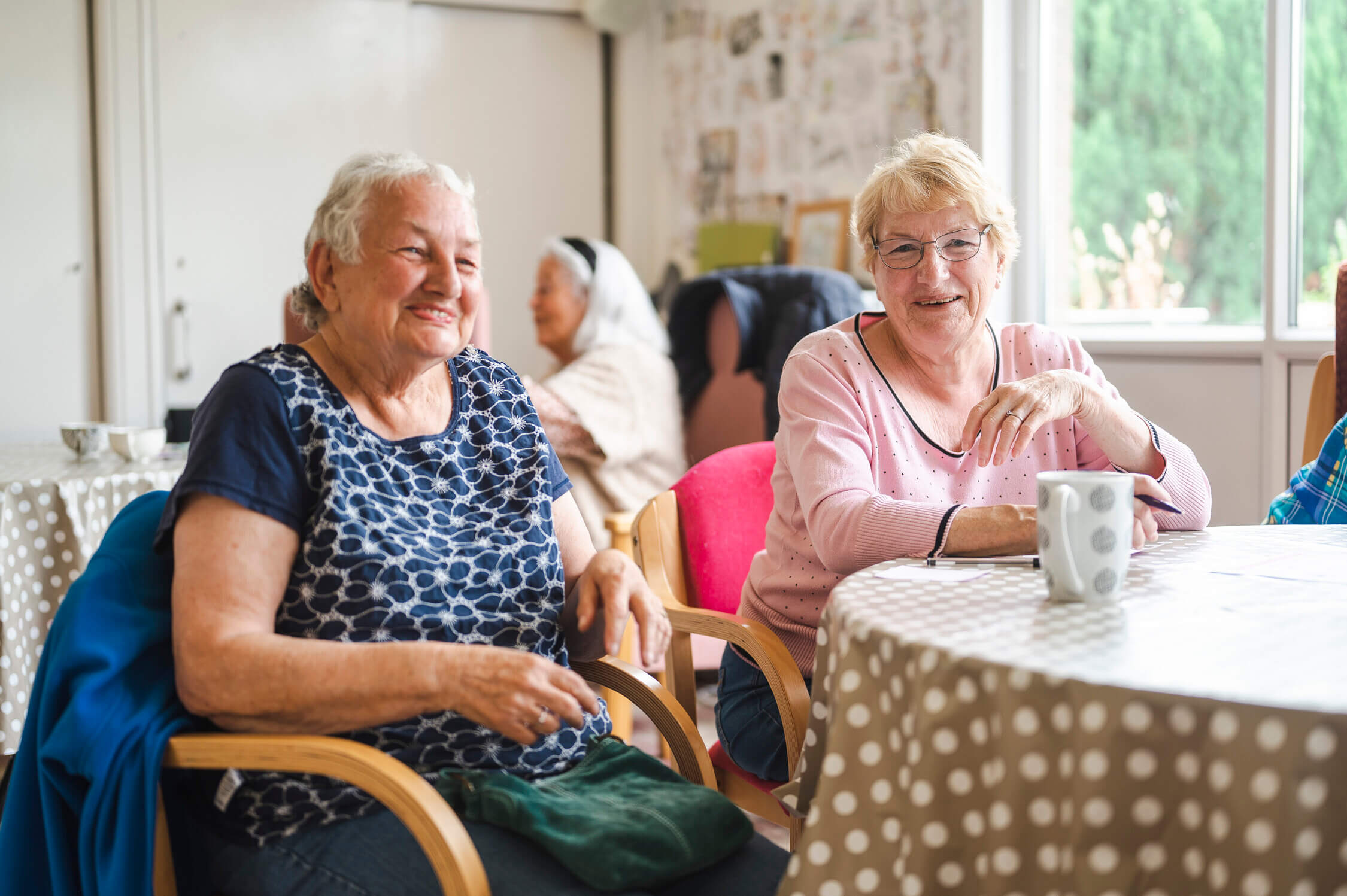
Elderly care, also known as elder care, is professional support that helps older adults live safely, comfortably, and independently in their own homes for as long as possible.
Elderly care gives you peace of mind that your loved one is receiving personalised support tailored to their daily needs.
This type of care can include:
- Help with personal care, such as washing, dressing, and toileting
- Support with mobility and administering medication
- Light housekeeping and meal preparation
- Meaningful companionship to reduce loneliness
Unlike moving into a care home, elderly care at home allows your loved one to stay in familiar surroundings, supported by a carefully matched carer who truly understands their needs.
Who can benefit from elderly care services?
Elderly care services are ideal for older adults who are starting to struggle with daily tasks due to age-related challenges, whether that’s limited mobility, ongoing medical conditions, memory loss, or increased feelings of isolation.
Your loved one might benefit from professional care if they’re living with conditions such as dementia, Parkinson’s Disease, arthritis, or recovering from surgery. Even if they’re just finding it harder to manage personal care, cook meals, or safely get around the house, having a dedicated carer can make a meaningful difference to their quality of life.

When is the right time to seek elderly care?
It’s not always easy to know exactly when to step in but often, small changes in your loved one’s routine can signal it’s time to consider support. You might ask yourself:
- Can they navigate the house safely without falling or getting confused?
- Can they go out alone for appointments or shopping?
- Are they able to cook their own meals regularly?
- Do they stay properly nourished and hydrated?
- Can they hear the phone or doorbell clearly?
- Is their living space clean, safe, and well-maintained?
- Are they managing personal hygiene on their own?
- Are they experiencing frequent lapses in memory or confusion?
- Do they have regular social contact, or are they becoming isolated?
If you’re noticing a pattern of “no” answers, now may be the right time to explore elderly care options. We know these conversations aren’t easy – that’s why we’ve created a helpful webinar with our top tips on how to start the conversation about home care.
Our Elder care services
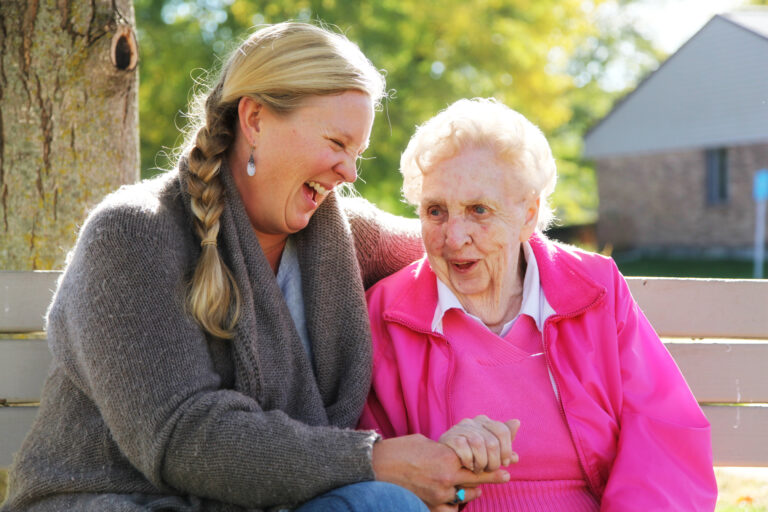
Live-in care
- A carer moves in with your loved one to support them 24/7
- Suitable for people living with conditions like dementia and reduced mobility
- For long-term care needs
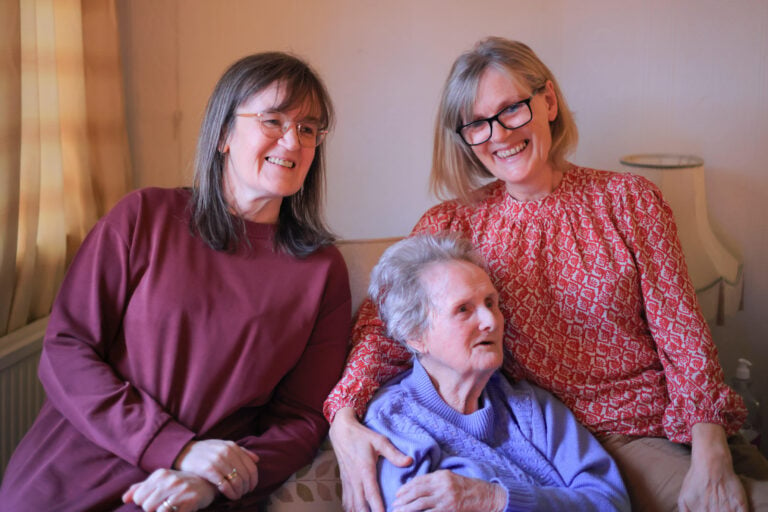
Visiting care
- Flexible, hourly based care in the comfort of your home
- Support with everyday tasks like grooming, walks and cooking
- From as little as 1 hour per week
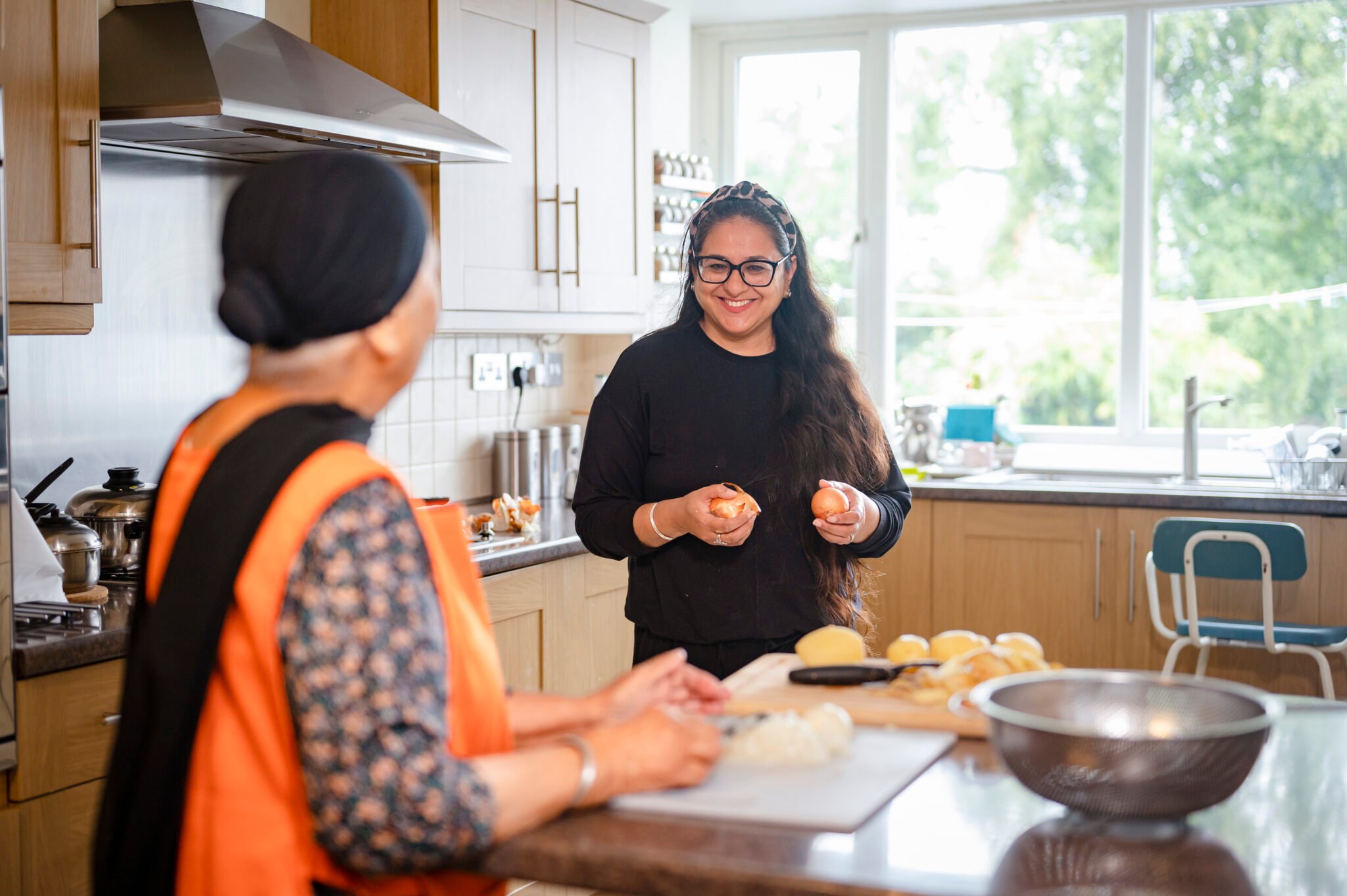
Respite care
- A carer moves in for a few days to provide 24-hour support
- Suitable for covering a regular carer’s break or short-term care needs
- Minimum duration of 3 days

Overnight care
- A carer stays through the night to provide support and reassurance
- Suitable for those needing help overnight or monitoring for safety
- Choose from a sleeping or waking night carer depending on your needs
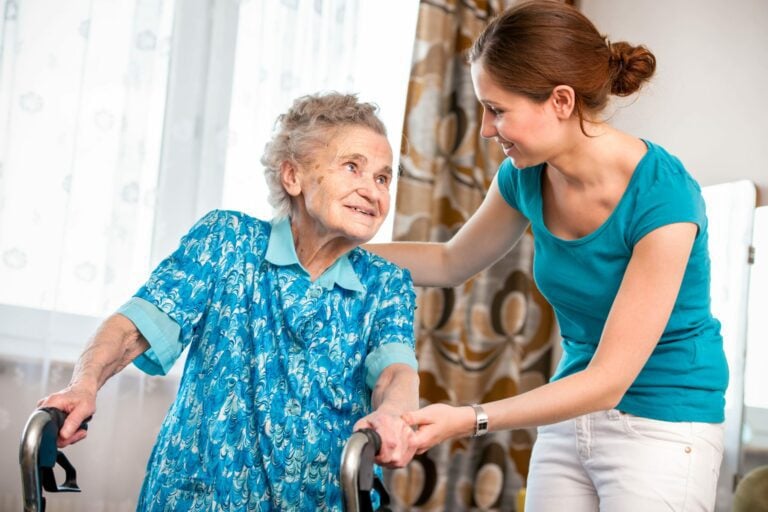
Palliative care
- Compassionate care focused on comfort and dignity for those with serious illness
- Suitable for people with life-limiting conditions who wish to stay at home
- Care tailored to changing needs throughout the palliative stage
Other types of Elderly care services
At Elder, we focus on home care solutions, but it’s useful to understand the full spectrum of elderly care options. Depending on your loved one’s health and support needs, care homes, nursing homes, assisted living, or hospice care might be appropriate alternatives that provide care outside the home.
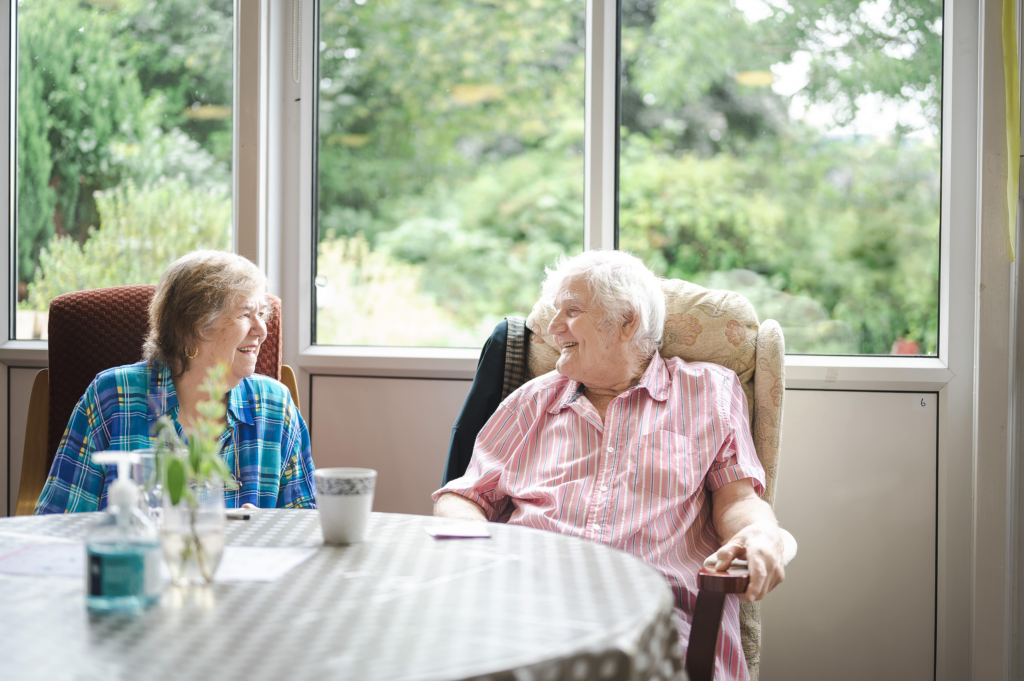
Care homes for the elderly
Care homes are often the first option considered when an older person can no longer live independently. Residents typically have their own bedroom and bathroom but share communal areas like lounges, dining rooms, and gardens.
Care home staff provide 24/7 support, including meals, housekeeping, and assistance with personal care tasks such as dressing and mobility. Scheduled activities and onsite facilities like cafes can help encourage social interaction.
Pros
- 24/7 supervision in a secure facility
- Onsite social activities and facilities
- Structured daily routine
Cons
- Adjusting to a new home and routine
- Less one-to-one care due to staff-to-resident ratios
- Reduced privacy and independence
Nursing homes for the elderly
Nursing homes cater to individuals with more complex or acute medical needs, staffed by registered nurses and care workers. They offer specialised care for life-limiting or chronic health conditions requiring regular medical attention, such as stoma care, pain management, and rehabilitation.
Nursing homes may be co-located with residential care but differ significantly in the level of medical support provided.

Pros
- Access to professional nursing care 24/7
- Comprehensive accommodation and meal services
- Potential funding support from councils or NHS
Cons
- Transition from home can be challenging
- Limited autonomy and privacy
- Can be costly if not eligible for funding
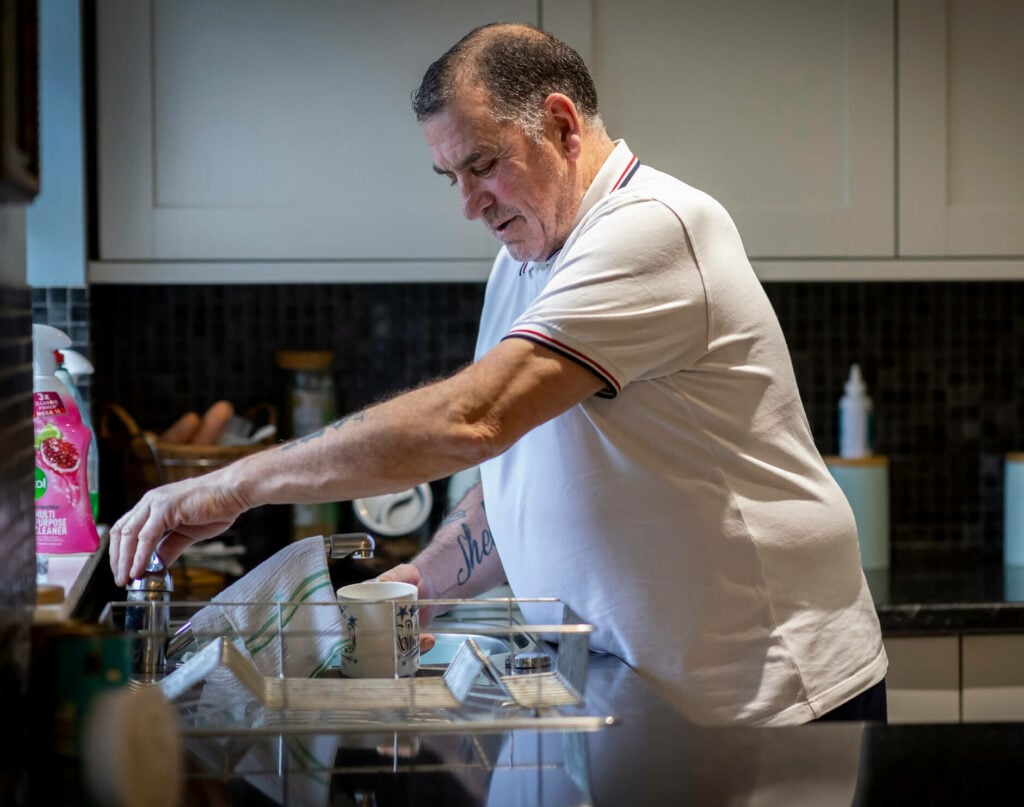
Elderly assisted living
Assisted living offers a middle ground between full residential care and independent living. Residents typically live in self-contained flats within specialist housing complexes, giving them more independence while having 24-hour access to support staff.
Assisted living often includes optional communal activities and is suited for those who need some assistance but not full-time care.
Pros
- Staff available around the clock for peace of mind
- Preserves a sense of independence and privacy
- Offers a sense of community
Cons
- Availability and cost vary by location
- May not be suitable for those with complex conditions
- Moving to a new home can be difficult
Hospice care
Hospices provide specialised care for people with terminal or life-limiting illnesses, focusing on comfort, emotional support, and quality of life. Services include day programs with therapies and counselling, as well as residential stays for short-term respite or end-of-life care.
Hospice care is typically free and delivered by multidisciplinary teams including doctors, nurses, and therapists.
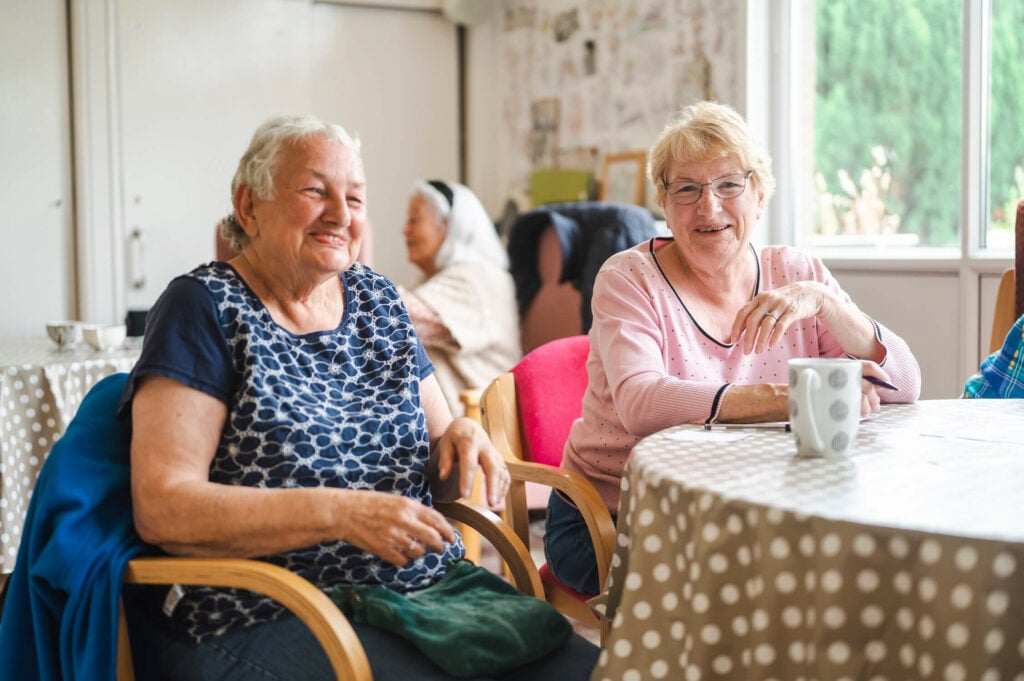
Pros
- Free of charge care and support
- Access to a full team of healthcare and social support professionals
Cons
- Some may prefer to remain at home rather than in a hospice facility.
Elderly care at home vs care home
The table below compares key features to help you understand the benefits of receiving elderly care at home versus moving into care homes.
| Elder care at home | Care homes | |
|---|---|---|
| Stay in the family home | ||
| Choose the carer | ||
| Flexible schedules | ||
| Unrestricted family access | ||
| Keep elderly couples together | ||
| Tailored meals | ||
| Keep pets, routines and hobbies | ||
| Daily price | From £165 | £180 on average |
Getting started with elderly care

Arranging care for a loved one can feel overwhelming, but we’re here to guide you through it.
Here are a few key steps to help you get started:
- Request a care needs assessment from your local council to understand the level of support required.
- Check if you’re eligible for funding to help cover the cost of care.
- Explore the type of care that best fits your loved one’s needs. Our no-obligation care profile is a helpful first step in understanding your options.
Need help? Our team is always on hand to talk you through the process.
Hear from our elderly care customers
We’re proud to support families with flexible and compassionate elderly care at home. But don’t just take our word for it – hear from the people we’ve helped and see how our carers have made a real difference.
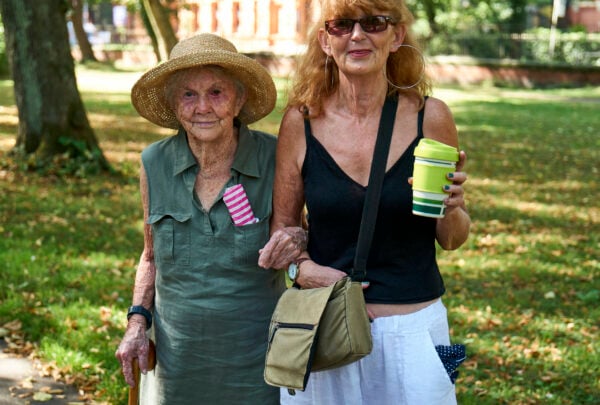
“Patience is a breath of fresh air! She is lively, cheerful and fun and brings joy to my in-laws' home. Nothing is too much trouble. She makes my mother-in-law feel like a princess.”
Louise

“David has been 400% better than I could ever have imagined. I have seen many carers over the years but David is in a break away Premier league. He is attentive, thoughtful, constantly looking to improve the situation.”
Matthew
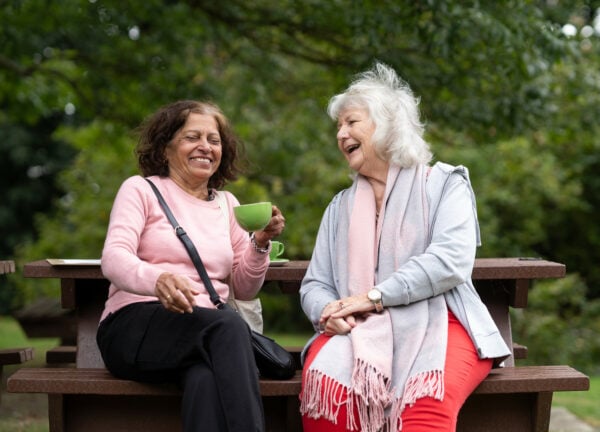
“[Our carer] never underestimated mum's sharp intellect and desire to hold on to her independence. She and mum chatted about songs mum had always enjoyed, and she helped to create a special playlist for her."
Jane

“My mother has dementia and Maria quickly gained her trust...Maria cooks her delicious meals from scratch and keeps my mother busy with new card games. I have never seen my mother so happy.”
Alice

“She was a very friendly capable caring lady. My husband thought the world of her and has asked me if he can have her care for him the next time I am away which means a lot to me.”
Elizabeth

"Marko has taken the trouble to understand Ken's complicated needs, has become a good friend for Ken and is restoring some fun to Ken's life. For that we cannot thank him enough."
Alan
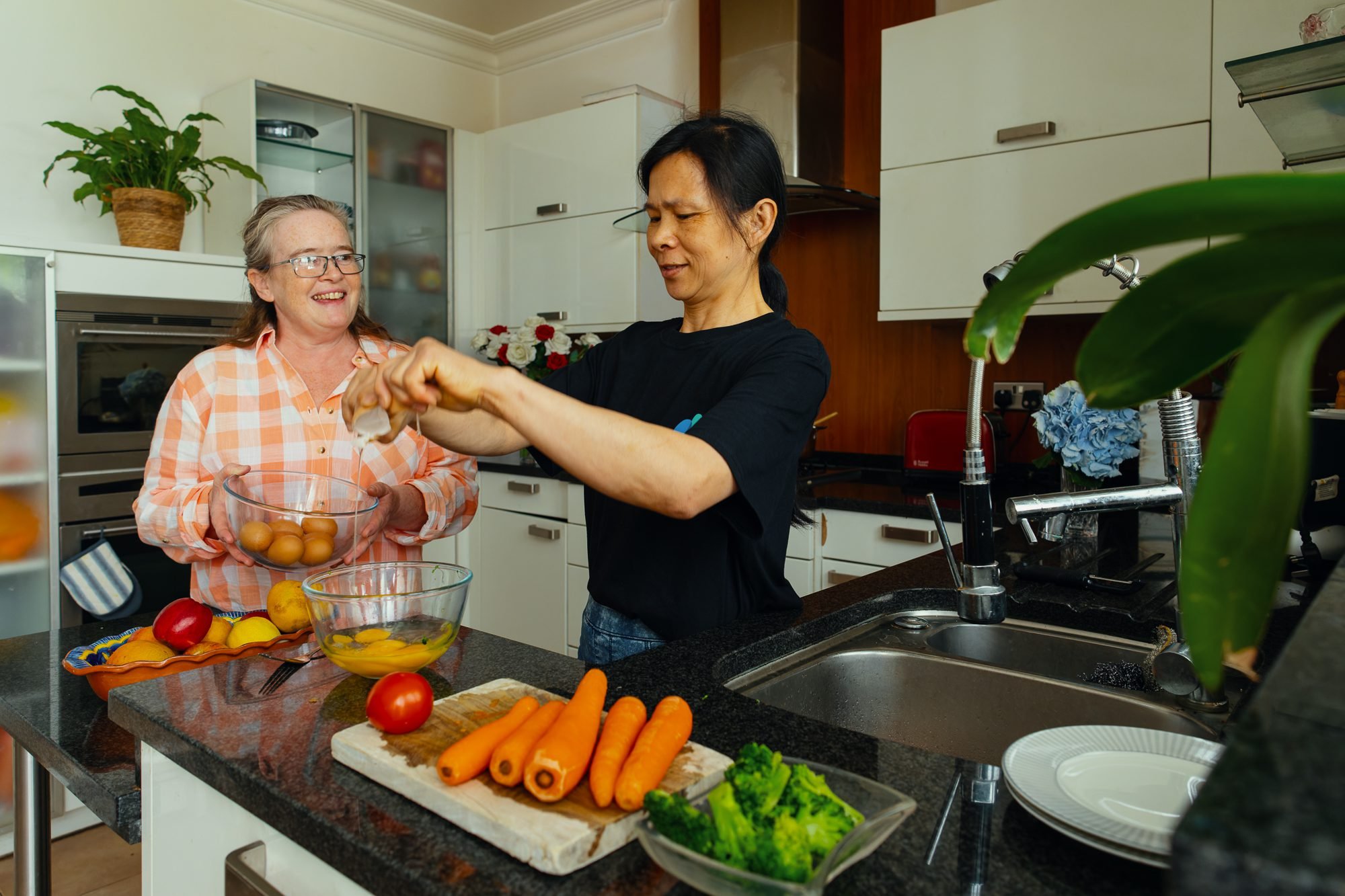
“Josephine has gone above and beyond. Every Wednesday she cooks a big meal and sets the table for Alison, her son Donald and his wife Annette, which is the highlight of the week and something they all really look forward to.”
Kyla
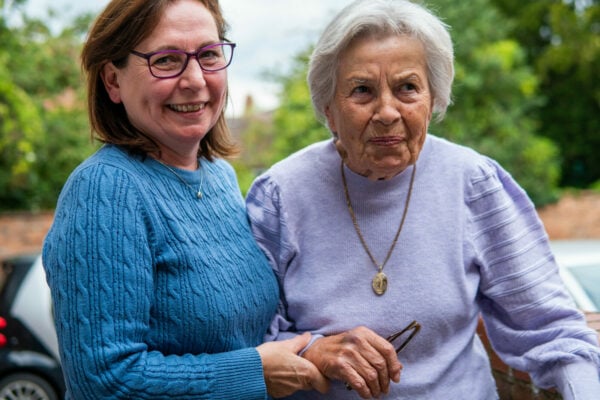
“Katie has made life easier and better for my gran from the moment she arrived. She has fitted in so well with our wee family and makes my gran feel special. ”
Angela
FAQs about elderly care
-
What are the different types of elderly care available in the UK?
Elderly care in the UK is generally divided into two main types: home care and residential care.
Home care allows older adults to remain in their own home while receiving personalised support. This includes live-in care, visiting care, respite care, overnight care, and palliative care.
Residential care involves moving into a dedicated facility and includes care homes, nursing homes, assisted living, and hospice care.
The right option will depend on your loved one’s individual needs, health, and lifestyle preferences.
-
How do I know if my loved one needs care?
If your loved one is struggling with daily tasks, forgetting things often, missing medication, or becoming isolated, it may be time to consider care. Signs like mobility issues or poor personal hygiene can also indicate they need support. A care needs assessment from your local council can help you understand what level of care is right.
-
Is elderly care at home better than a care home?
Elderly care at home offers many advantages over care homes for those who value independence and comfort. It allows your loved one to stay in familiar surroundings, maintain their routine, and receive one-to-one support from a dedicated carer. While care homes provide 24/7 staff support and social opportunities, they often involve adapting to a new environment and shared care. Caring for the elderly at home is often more personalised and flexible.
-
How much does elderly home care cost?
The cost of elderly home care varies depending on the level of support required, location, and whether care is hourly or live-in. With Elder, hourly care starts from £30, while live-in care starts from £1150 per week (£165 per day). What’s more, you won’t be charged extra for weekends, public holidays or joining fees.
-
Can elderly care be arranged quickly in an emergency?
Yes, elderly care can be arranged quickly in urgent situations, such as hospital discharge or sudden illness. At Elder, we specialise in fast, reliable care placements and can often arrange emergency home care within 24 to 48 hours. Our team works with families to understand their needs and match them with an experienced carer as quickly as possible, ensuring continuity and peace of mind.
-
How do I arrange elderly care?
Arranging care with Elder is simple and can be done in three easy steps:
- Share your care needs
Fill out our online care request form with details about the type of care you’re looking for, any specialist support needed, and your loved one’s daily routine.
- Choose your carer
Within 24 hours, you’ll receive profiles of experienced self-employed carers. You can message them, or arrange a phone or video call before making your choice.
- Manage everything online
Once care begins, you can use your MyElder account to communicate with your carer and the Elder team, update care arrangements, and request respite cover if needed.





